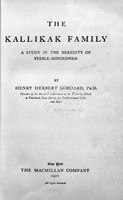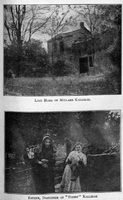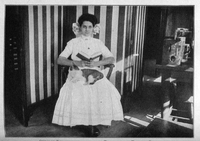Controlling Heredity
Henry Goddard's The Kallikak Family

Henry Herbert Goddard (American, 1866 – 1957)
The Kallikak Family: A Study in the Heredity of Feeble-Mindedness.
New York: MacMillan, 1912.
Ellis Library 136.3 G54
University of Missouri
Full text in Google Books

Henry Herbert Goddard (American, 1866 – 1957)
The Kallikak Family: A Study in the Heredity of Feeble-Mindedness.
New York: MacMillan, 1912.
Ellis Library 136.3 G54
University of Missouri
Full text in Google Books

Henry Herbert Goddard (American, 1866 – 1957)
The Kallikak Family: A Study in the Heredity of Feeble-Mindedness.
New York: MacMillan, 1912.
Ellis Library 136.3 G54
University of Missouri
Full text in Google Books
Henry Goddard was a prominent and pioneering psychologist and educator in the early twentieth century. From 1906 to 1918 Goddard was the Director of Research at New Jersey’s Vineland Training School for Feeble-Minded Girls and Boys, the first clinical laboratory to study intellectual disabilities.
Published in 1912, The Kallikak Family: A Study in the Heredity of Feeble-Mindedness was Goddard’s best-known book. He studied a “family” in upstate New York—actually a grouping of people possibly but not definitely related—and concluded that they were all descended from a single Continental Army soldier. According to Goddard, Martin Kallikak first married a Quaker woman and all of the offspring that came from the marriage were intelligent and resourceful and demonstrated no indications of mental defectiveness. Goddard discovered that Kallikak’s liason with a "feeble-minded" girl, however, resulted in "a race of defective degenerates."
Though welcomed by most American eugenicists, The Kallikak Family attracted widespread criticism for its careless and imprecise research methodology and conclusions. Within a decade Goddard himself considered the book unsound and its conclusions to be neither accurate nor defensible.
On display are plates depicting the home of Millard Kallikak and one of his illegitimate daughters, Ester Kallikak.